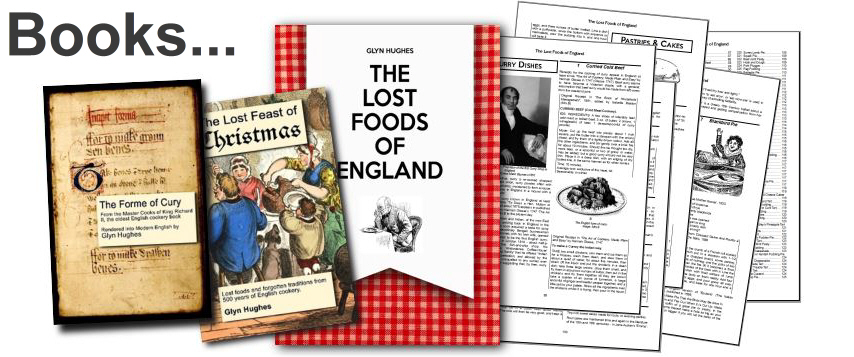

|
 Pork rubbed with salt and smoked continuously until, "The flitch ought not to be dried up to the hardness of a board, and yet it ought to be perfectly dry." Mr Cobbet of 18, Pall Mall, London was a grocer held in high esteem by Eliza Acton (Acton 1845)  Original Receipt from 'Modern Cookery for Private Families' by Eliza Acton (Acton 1845); Original Receipt from 'Modern Cookery for Private Families' by Eliza Acton (Acton 1845);Cobbett's Receipt For Curing Bacon. All other parts being taken away, the two sides that remain, and which arc called flitches, are to be cured for bacon. They are first rubbed with salt on their inside, or flesh sides, then placed one on the other, the flesh sides uppermost in a salting trough, which has a gutter round its edges to drain away the brine; for to have sweet and fine bacon, the flitches must not he sopping in brine, which gives it the sort of taste that barrel-pork and sea-junk have, and than which is nothing more villanous. Everyone knows how different is the taste of fresh dry salt from that of salt in a dissolved state. Therefore, change the salt often; once in four or five days. Let it melt and sink in, but let it not lie too long. Change the flitches, put that at the bottom which was first on the top. Do this a couple of times. This mode will cost you a great deal more in salt than the sopping mode; but without it your bacon will not be so sweet and fine, nor keep so well. As to the time required for making the flitches sufficiently salt, it depends on circumstances; the thickness of the flitch, the state of the weather, the place wherein the salting is going on. It takes a longer time for a thick than for a thin flitch; it takes longer in dry than in damp weather, it takes longer in a dry than in a damp place. But for the flitches of a hog of five score, in weather not very dry or very damp, about six weeks may do; and as yours is to be fat, which receives little injury from over-salting, give time enough; for you are to have bacon till Christmas comes again. The place for salting should, like a dairy, always be cool, but always admit of a free circulation of air; confined air, though cool, will taint meat sooner than the midday sun accompanied with a breeze. With regard to smoking the bacon, two precautions are necessary: first to hang the flitches where no rain comes down upon them, and next, that the smoke must proceed from wood, not peat, turf, nor coal. As to the time that it requires to smoke a flitch, it must depend a good deal upon whether there be a constant fire beneath, and whether the fire be large or small. A month will do if the fire be pretty constant, and such as a farm house fire usually is. But oversmoking, or rather, too long hanging in the air, makes the bacon rust. Great attention should, therefore, be paid to this matter. The flitch ought not to be dried up to the hardness of a board, and yet it ought to be perfectly dry. Before you hang it up, lay it on the floor, scatter the flesh-side pretty thickly over with bran or with some fine saw-dust, not of deal or fir. Rub it on the flesh, or pat it well down upon it.  |
|
MORE FROM Foods of England... Cookbooks ● Diary ● Index ● Magic Menu ● Random ● Really English? ● Timeline ● Donate ● English Service ● Food Map of England ● Lost Foods ● Accompaniments ● Biscuits ● Breads ● Cakes and Scones ● Cheeses ● Classic Meals ● Curry Dishes ● Dairy ● Drinks ● Egg Dishes ● Fish ● Fruit ● Fruits & Vegetables ● Game & Offal ● Meat & Meat Dishes ● Pastries and Pies ● Pot Meals ● Poultry ● Preserves & Jams ● Puddings & Sweets ● Sauces and Spicery ● Sausages ● Scones ● Soups ● Sweets and Toffee ● About ... ● Bookshop ● Email: editor@foodsofengland.co.uk COPYRIGHT and ALL RIGHTS RESERVED: © Glyn Hughes 2022 BUILT WITH WHIMBERRY |